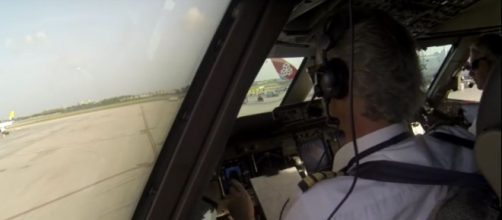Most Americans prefer to travel by air from one city to another, but some of them are not aware of flight protocols that are meant to keep their lives safe. When an airplane is airborne, many lives are at stake, and even though plane accidents are minimal, relevant bodies have rules that are meant to make travelers’ lives safer, one of them being, Pilots and co-pilots should not share the same meal.
Pilots have rules
Airline passengers’ safety depends on the controlled flight deck, but pilots have different rules that the rest of the crew. They can’t eat the same meal with their co-pilots so that in case something goes wrong with the food, for instance, Food Poisoning, one of them will remain in control.
No passenger would want to imagine being on a plane with no pilot. It's not just the insane flight delays that keep you waiting until you start questioning yourself why you didn’t travel earlier. All they want is to ensure your safety, and you should appreciate their efforts.
Pilots avoid raw fish
Pilots also avoid foods like fresh fish, before or during working hours. If you watched the classic comedy “Airplane,” you perhaps learned that if the pilot and co-pilot experienced food poisoning, that flight would be in big trouble. According to Bravo TV, the pilot usually eats the first class meal while the co-pilots settles for the business-class meal. However, you should not be worried when one of the pilots becomes sick.
All pilots are trained to handle a multi-engine jet single-handedly.
The practice of the pilot and co-pilot not sharing a meal is not Federal Aviation Administration’s mandate, but many airlines have their own set of rules. In 1982, a flight heading to Lisbon from Boston was forced to turn back after the pilot, the co-pilot, flight engineer and nearly a dozen members of the crew became sick after consuming bad tapioca pudding. Food poisoning is one of the leading causes of pilot sickness according to The Telegraph.
Nausea and fainting are other reasons causing pilot sickness
In December 2009, a pilot collapsed twice in the cockpit as a result of food poisoning and required oxygen. Also in October 2009, a flight had to make an emergency landing at Malaga after a food poisoning case.
It's not just food poisoning that can make the pilot sick. There have been emergency landings after a range of health issues affecting the pilots like nausea, or fainting.
Co-pilots play vital roles to ensure that passengers are safe and some of them prefer not to take meals while on the flight. If co-pilots were not there, cases like these could have led to deaths and impacted the reputation of commercial aviation. At least now you can feel safer as a passenger, and if you see the pilot and co-pilot share the same kind of snack, even though it might be hard since you can’t access the cockpit, be worried!


